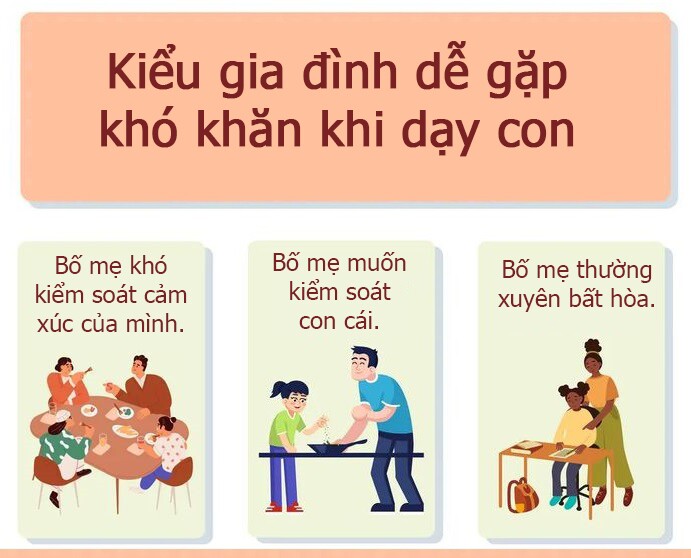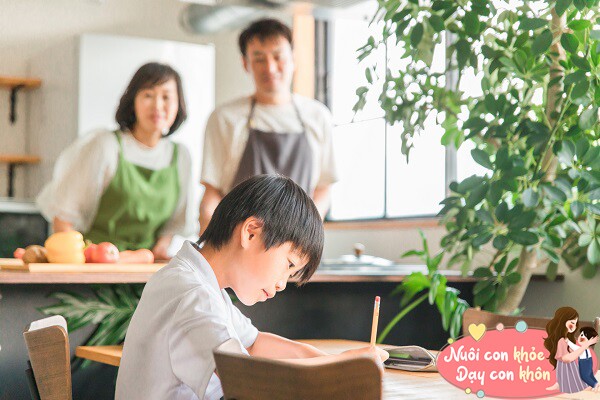Vien Vien has been dating her boyfriend for several years, but due to her father’s disapproval of his rural household registration, they have never progressed to the stage of discussing marriage.
In her father’s eyes, Vien Vien is a hopeless child, as she has failed the civil servant exam multiple times. He feels that her current job does not bring him any honor.
One afternoon, Vien Vien was resting at home and baking bread. She was recording the process on her laptop while her mother was watching TV and doing housework in the living room. As soon as her father came home, he started scolding Vien Vien for not “fulfilling her duties.”
Her mother stood up for her daughter, but the father began to scold his wife. This time, Vien Vien couldn’t take it anymore and talked back.
However, unexpectedly, the father started smashing things on the table, even her expensive laptop that she bought on an installment plan.
When Vien Vien saw that her father’s emotions and behavior were getting out of control, she immediately took out her mobile phone and called the police.
After the rage subsided, Vien Vien looked at her broken laptop, which couldn’t be turned on, along with the unpaid debt, and suddenly felt very sad.

Illustration photo.
Perhaps feeling indignant about growing up without her father’s love, Vien Vien posted the whole incident on social media and publicly criticized her father.
After seeing the post, her uncle (the father’s younger brother) immediately called to scold her: “You’re still young, don’t speak so disrespectfully. After all, he is your father, you shouldn’t be so disrespectful.”
Vien Vien felt very sad at that time. Her uncle asked her to respect her father, but her father had never respected her or her mother.
Vien Vien recounted that her father always set extremely high standards, but she often fell short of his expectations.
In her father’s eyes, her job has a low salary and is unstable, her boyfriend is not good enough, and painting is just a hobby, not a real job.
When she was a student, her daily life was controlled by her father. Even after she started working, her beloved boyfriend did not receive respect from her father.
Meanwhile, her mother has a weak character. Although her mother occasionally chats with Vien Vien, she has never received any real help or support.
The high expectations made Vien Vien feel suffocated, and the strong desire for control from her family made her want to escape from this home. But due to financial constraints, she had to live with her parents.
In fact, it is natural for parents to have expectations of their children. However, when children do not progress, it is necessary to re-examine the education method and whether it is suitable for the child’s character and current needs.
What’s important is to create a good development environment for the children. Experts conducted a survey, and the results showed that there are 3 types of families that find it difficult to raise outstanding children no matter how hard they try.
The influence of family education on children is undeniable. As the saying goes, “If you want to know what a child will be like in the future, look at their parents.”


Parents struggle to control their emotions
Some parents, when faced with unfavorable situations, easily explode with emotions and find it difficult to control themselves. This is especially evident when educating children, as the parents’ mood can quickly change from cheerful to irritable and angry in an instant.
These emotions not only affect the parents themselves but also have a profound impact on the children in the family.
For example, sometimes the father may still be worried about work after returning home, but the children are happily playing. At this moment, the parent may unload their work stress onto the children by scolding them. This unfair treatment confuses the children and creates a stifling atmosphere in the family.

Parents struggle to control their emotions.
Children growing up in this type of family always feel blamed, even though they haven’t done anything wrong. As a result, they often develop a sense of insecurity, anxiety, and low self-esteem. They learn to avoid adults or become overly sensitive to others’ reactions, leading to a reluctance to express their own emotions or opinions.
Moreover, being constantly blamed and punished can leave deep psychological scars. Those who grow up in such an environment often have a pessimistic and depressed mindset. They may find it more challenging to build healthy relationships because they carry fears and insecurities.

Parents desire strong control over their children
Many children often hear their parents say: “You must do this” and “You must not do that.”
Parents may plan for the long term, but they should not view controlling every aspect of their children’s lives as an expression of love.
In families where parents exert excessive control, children’s behaviors will be restricted, and they will lose the ability to make their own choices and take responsibility for themselves.
This is especially true when children enter adolescence, as they develop a strong sense of self-awareness and yearn to break free from parental control.
Meanwhile, parents who desire strong control may feel that they are doing their best, but their children do not understand their efforts. In reality, they are limiting their children’s space and freedom.

Parents desire strong control over their children.

Parents frequently disagree
Psychologist Ngo Chi Hong once said, “Parents are the greatest destiny of their children.” The relationship between parents plays a crucial role in shaping their children’s personalities and nurturing their abilities.
If the family relationship is harmonious, the children, enveloped in love, will be filled with happiness, confidence, and strength.
On the other hand, if the parents frequently disagree and have an unhealthy relationship, it will erode the children’s trust and love for their family.
At the same time, it will become an indelible shadow in the children’s lives, influencing their views on marriage and choice of life partner.

Parents frequently disagree.
Some children, when they grow up, accept the fact that their family is not ideal, learn from their parents’ mistakes in marriage, and strive to raise their children positively and become independent.
However, others are dragged down by their parents’ emotions and become burdened by their disagreements.
Therefore, we should view parental love and companionship as the most important nourishment for a child’s development.









































